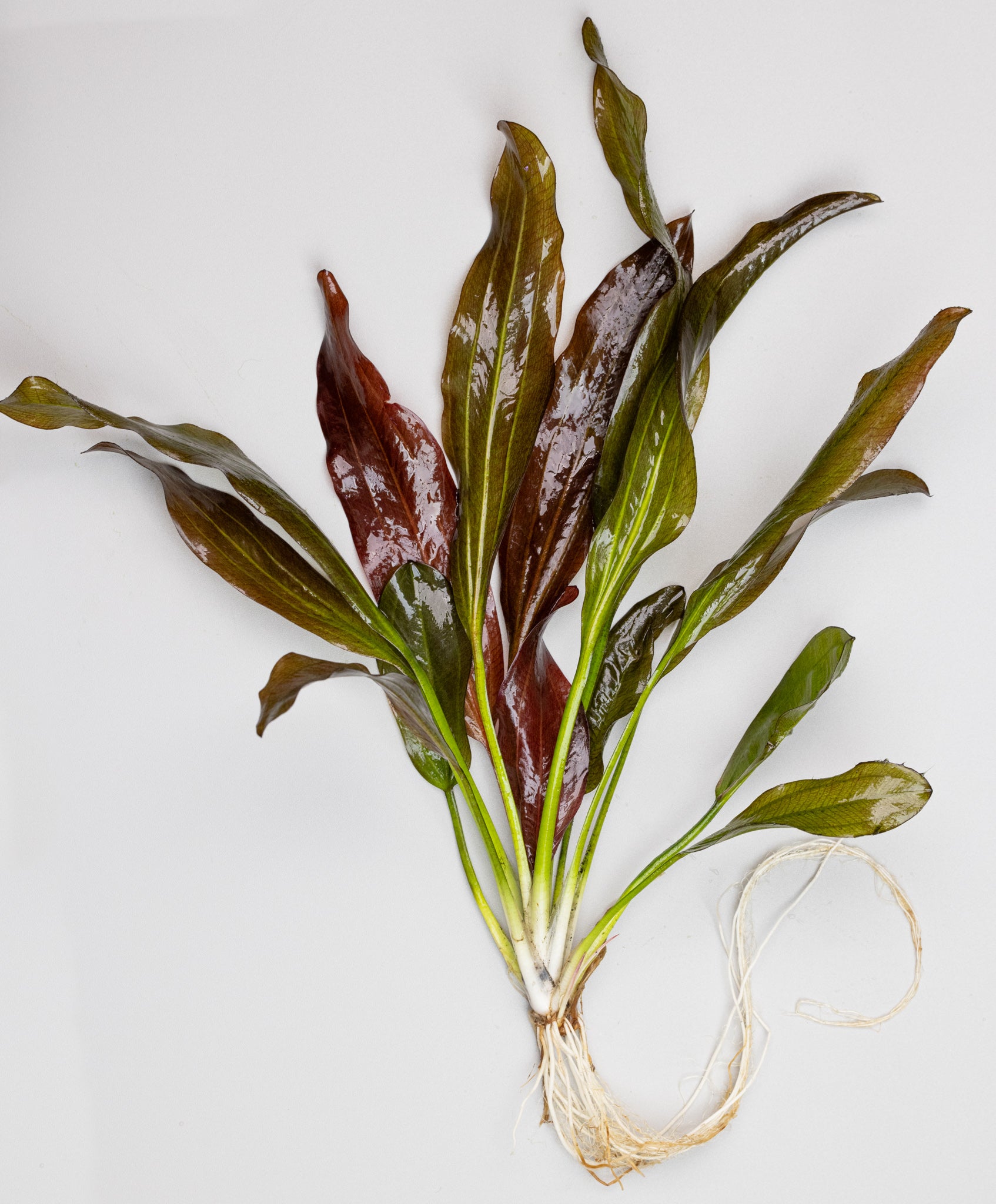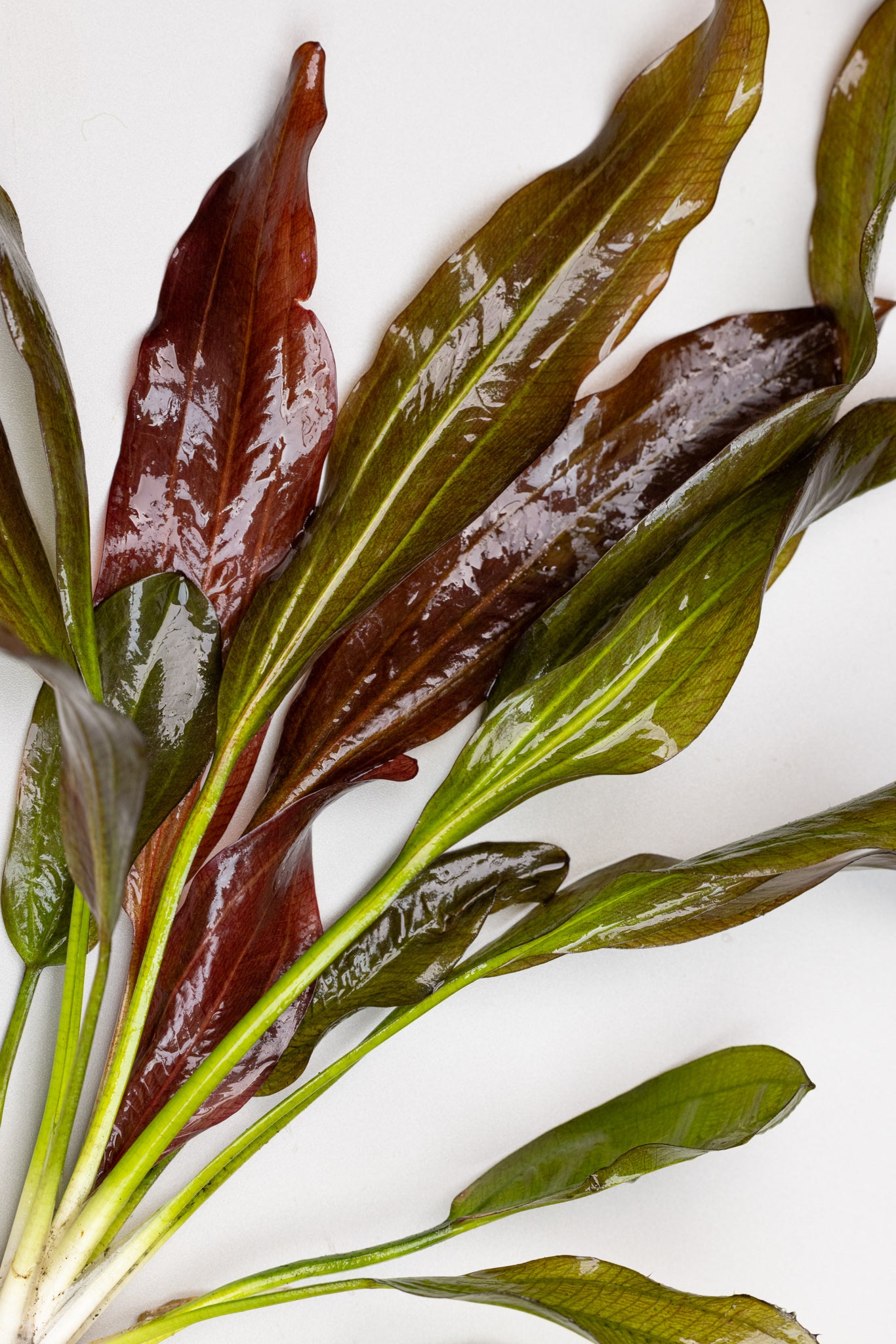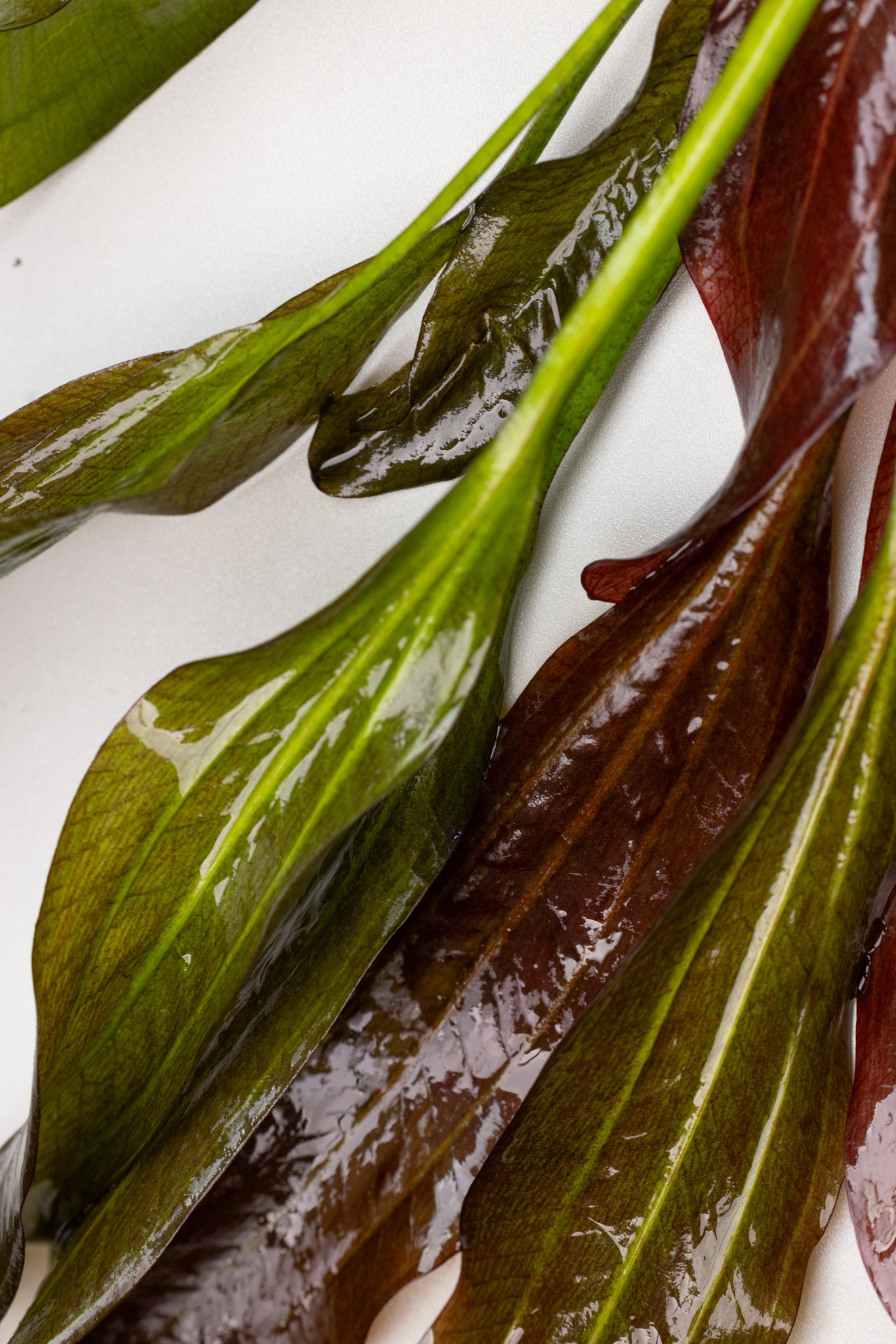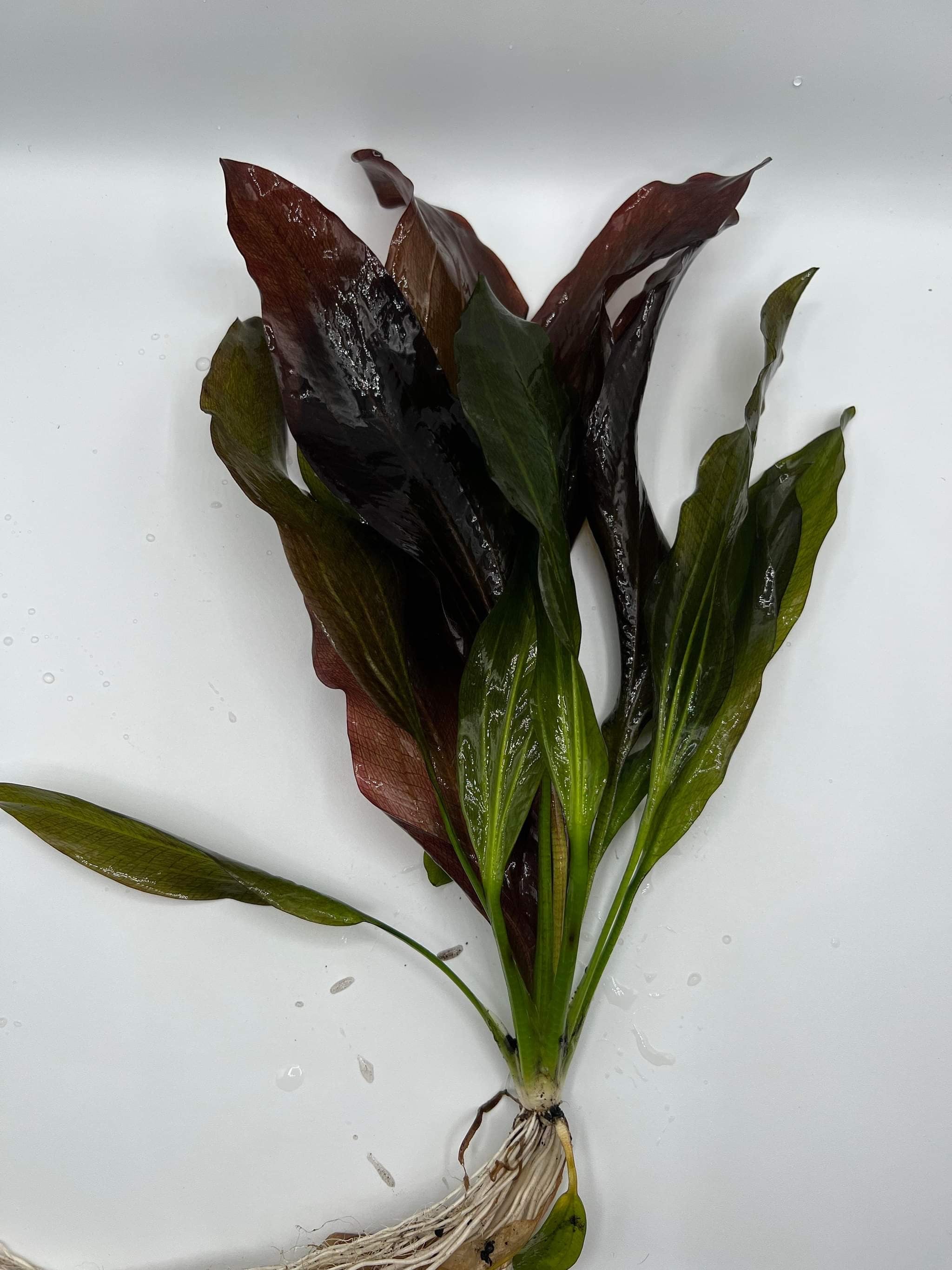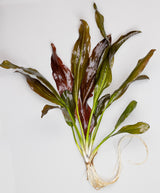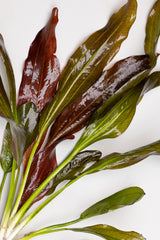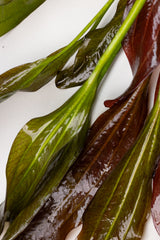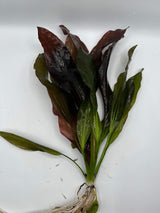Fancy Twist Sword
1 plant
Imported from Thailand this uncommon echinodorus (sword plant) offers a gentle curl to its deep red and green leaves.
Echinodorus plants, commonly known as sword plants, are popular choices for aquariums due to their attractive appearance and relatively undemanding care requirements. Here are general care guidelines for Echinodorus plants in aquariums:
**1. Lighting:**
- Provide moderate to high-intensity lighting. Echinodorus plants generally benefit from strong light for optimal growth and coloration.
**2. Substrate:**
- Plant in a nutrient-rich substrate. Echinodorus plants absorb nutrients through their roots, so a substrate with added nutrients or the use of root tabs can support their growth.
**3. Fertilization:**
- Regularly dose a comprehensive liquid fertilizer to supply essential nutrients. Echinodorus plants can be moderate to heavy feeders, especially if your aquarium substrate lacks nutrients.
**4. CO2 Injection:**
- While not strictly necessary, providing a source of CO2 can enhance growth and overall health, especially in setups with higher light. However, many Echinodorus varieties can thrive without additional CO2.
**5. Temperature:**
- Maintain a temperature range suitable for most tropical aquarium plants, typically around 72-82°F (22-28°C).
**6. Water Parameters:**
- Aim for a pH between 6.0-7.5. Adjust water hardness to suit the preferences of the specific Echinodorus variety. Stability in water parameters is crucial for their well-being.
**7. Planting Depth:**
- Plant the roots in the substrate, ensuring the crown (where the roots meet the base of the leaves) is slightly above the substrate.
**8. Pruning:**
- Trim old or damaged leaves regularly to encourage new growth and maintain the plant's appearance. This is especially important for larger varieties that can produce broad leaves.
**9. Placement:**
- Consider the size and growth habit of the specific Echinodorus variety. Some are suitable for background planting, while others may work well as midground or focal point plants.
**10. Water Flow:**
- Provide gentle water circulation. Echinodorus plants generally don't require strong water flow, and some varieties can be sensitive to turbulent conditions.
**11. Tank Mates:**
- Choose tank mates that won't disturb the plant. Some fish, especially diggers, may uproot plants, so consider the behavior of your aquarium inhabitants.
Always adjust care based on the specific characteristics of the Echinodorus variety you have. Regular monitoring, water changes, and attention to plant health will contribute to a successful and thriving aquarium setup.


